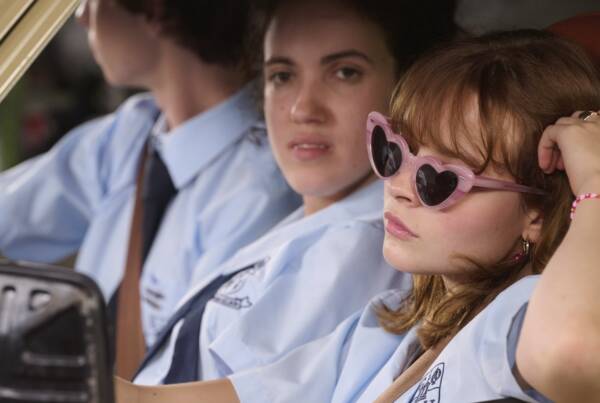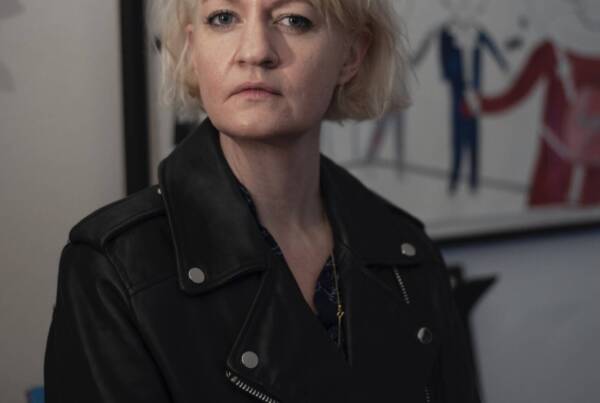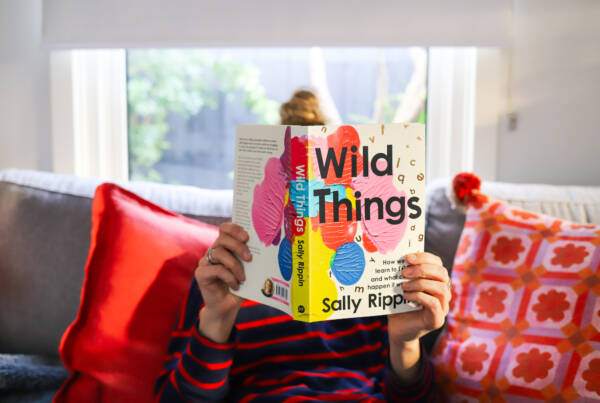Writing and artwork by Seth Lukas Hynes // A common expression states that we talk with our wallets, but we judge with them too. By refusing to consume media made by people who have committed cruel or hateful acts, you send a message, to perpetrators and fellow consumers, that these actions are not okay.
Writing and artwork by Seth Lukas Hynes
Earlier this year, film critic and video essayist Lindsay Ellis released an epic three-part deconstruction of Peter Jackson’s Hobbit trilogy. The third episode addresses the so-called ‘Hobbit Law’, a piece of legislation that severely crippled the rights of New Zealand film workers. A running thread in this episode concerns the ways in which we consume media, and coming to terms with the uncomfortable fact that media we enjoy may have exploitation or abuse behind it.
Ellis cites Kesha as a personal example. Ellis was a big fan of Kesha’s early music and her sloppy, rowdy party-girl image, but she can’t listen to this early music after learning of the years of emotional and sexual abuse Kesha suffered from her producer Dr. Luke.
This relates to a broader issue of whether we should separate artists from their work in the event of the artists being abusers, which may be viewed, in turn, as an extension of the literary theory chestnut ‘the death of the author’.
In his 1967 essay, French theorist Roland Barthes asserts that we should divorce texts from the author’s identity, background, knowledge and experiences. Barthes argues that factoring these details into analysis is both impossible – how can we fully know the author’s intent? – and generates a limited impression of the text.
I’ve never been completely sold on the death of the author. The reader’s interpretation, and the evolving context in which the text is read and understood, may be of greater value, but I believe that the author’s intent should not be discarded completely.
But the way many liberal critics and media consumers – myself included – refuse to separate a text from an abusive, bigoted or morally repugnant author feels like a mild rebirth of the author.
The Assassination of Richard Nixon is one of my favourite character studies, but I will never watch another Sean Penn movie, due to the actor’s long history of violence and well-substantiated allegations of him having tied up and brutally assaulted his then-wife Madonna in 1988.
Chinatown is one of the best films I’ve ever seen, but I will never watch another Roman Polanski movie, as Polanski is a rapist who fled justice for the drugging and raping of underage model Samantha Geimer in 1977.
Woody Allen is also an immensely talented director, but there is very compelling evidence to support allegations of him having molested his step-daughter Dylan Farrow in 1992.
I was already sick of Johnny Depp’s tired auto-pilot shtick, but I will no longer support his movies, as strong evidence and multiple corroborated witness accounts suggest that Depp was physically and emotionally abusive toward Amber Heard, his then-wife.
I’m reluctant to watch Michael Fassbender movies, as he allegedly assaulted his then-girlfriend Sunawin Andrews on two separate occasions in 2009.
The review aggregate site Channel Awesome has all but imploded by this point, after the #ChangeTheChannel movement caused a mass exodus of content creators from the site, and I will no longer watch any content by flagship creator Doug Walker (who plays the character The Nostalgia Critic). Extensive documentation from over two dozen former employees indicates that Walker was complicit or directly involved in gross negligence, disrespect and exploitation of fellow content creators.
Holding creative works accountable for their creators’ actions may, at first, seem unfair. Creative works are ethically neutral, in and of themselves. What does Woody Allen’s alleged act of rape have to do with Chinatown?
Of course you don’t support assault, rape or bigotry (consciously, anyway; entrenched oppressive attitudes are pretty insidious), but if you continue to consume media created by people guilty of these transgressions, you are endorsing these individuals, and by extension, indirectly and tacitly endorsing their actions.
A common expression states that we talk with our wallets, but we judge with them too. By refusing to consume media made by people who have committed cruel or hateful acts, you send a message, to perpetrators and fellow consumers, that these actions are not okay.
By continuing to patronise celebrities who have committed terrible acts, and glorifying them with continued fame, these acts of abuse are more likely to remain an unchallenged norm in society.
Johnny Depp verbally and physically abused Amber Heard throughout their relationship. By continuing to feature Depp as villain Grindelwald in the Fantastic Beasts film franchise, Warner Bros. has shown that they don’t really care about Depp’s acts of abuse, or for Heard or other victims of domestic abuse. At the very least, they don’t care enough to drop a profitable star from their franchise.
Is there room for forgiveness in this mentality? I think so, but on a case-by-case basis. If an artist who has committed hateful or abusive acts in the past shows genuine remorse, appears to have learned from their actions and (most crucially) is putting in a dedicated effort to make amends, then I might consider patronising their work once again.
Actor Mark Wahlberg is a hazy case with regards to penance.
Wahlberg did some reprehensible things in his youth, including open racist harassment and racially-motivated attacks against two Vietnamese-American men in 1986. Since then, he has been active in philanthropic efforts to help youths avoid the same path, in 2016 he withdrew his 2014 request for a pardon from the state of Massachusetts (which implies a degree of integrity), and personally apologised to Hoa “Johnny” Trinh, one of his victims in the aforementioned attacks.
However, in an article for Time, Brian Moylan notes a considerable current of ego in Wahlberg’s pursuit of redemption. In an article for the Washington Post by Justin Moyer, former judge Judith Beals, who issued a civil rights injunction against Wahlberg in 1986, observed that ‘Wahlberg has never acknowledged the racial nature of his crimes. Even his pardon petition describes his serial pattern of racist violence as a “single episode” that took place while he was “under the influence of alcohol and narcotics”.’
Do we use Wahlberg’s apology and the good he’s done for the community to justify watching his movies, or do his violent past actions and an apparent lack of sincerity in his reparations preclude this? I don’t think there’s an easy answer, in Wahlberg’s case or that of any repentant abuser.
More recently, rapper Chris Brown brutally beat up his then-girlfriend Rihanna in 2010. Since then, he has never offered a meaningful public apology, and has continued a trend of aggression, violent behaviour and smug self-aggrandizement up to the present. I don’t like Brown’s music anyway, but I will never patronise the work of this monstrous individual.
So, why do I still recommend the book and movies from before, despite their instances of unnecessary roughness, rape by deception and trans-erasure (respectively)?
I think that distance engenders a degree of ‘benefit of the doubt’ among many people. If a celebrity has committed a heinous act, many people still refrain from judging them, as they consider it unfair to judge someone they have never met.
This isn’t always a bad perspective to take. I have never met Jean-Pierre Jeunet, Tommy Wirkola (the director of What Happened To Monday) or Jacqueline Rayner, and I have encountered no evidence of Jeunet disrespecting women or Rayner being a trans-phobe. It’s safe to assume that these artists simply didn’t think through the implications of those objectionable snippets I’ve covered, and that there is no malice behind them.
As ethical consumers and critics, we have a duty to spotlight and interrogate such missteps in order to make media better: to educate both the audience and creators on why these mistakes may hurt, degrade or silence certain people. This will ensure that these missteps don’t keep happening and the damaging attitudes that feed on them don’t perpetuate.
It can be hard to accept when media we enjoy contains problematic or offensive elements or was made by an abuser, and you shouldn’t necessarily feel guilty for continuing to enjoy this media. A strong case can be made for severing ties with media made by abusers or bigots, and offensive elements with no hurtful intent should be confronted and discussed wherever possible, but what you can tolerate and live with is ultimately up to you. As critics and consumers, we must decide whether taking an indirect stand against assault, rape and bigotry is worth cutting out certain media we love.
Supporting media with problematic elements or creators may continue normalising bad currents in society, and we need to be aware of this as consumers.







